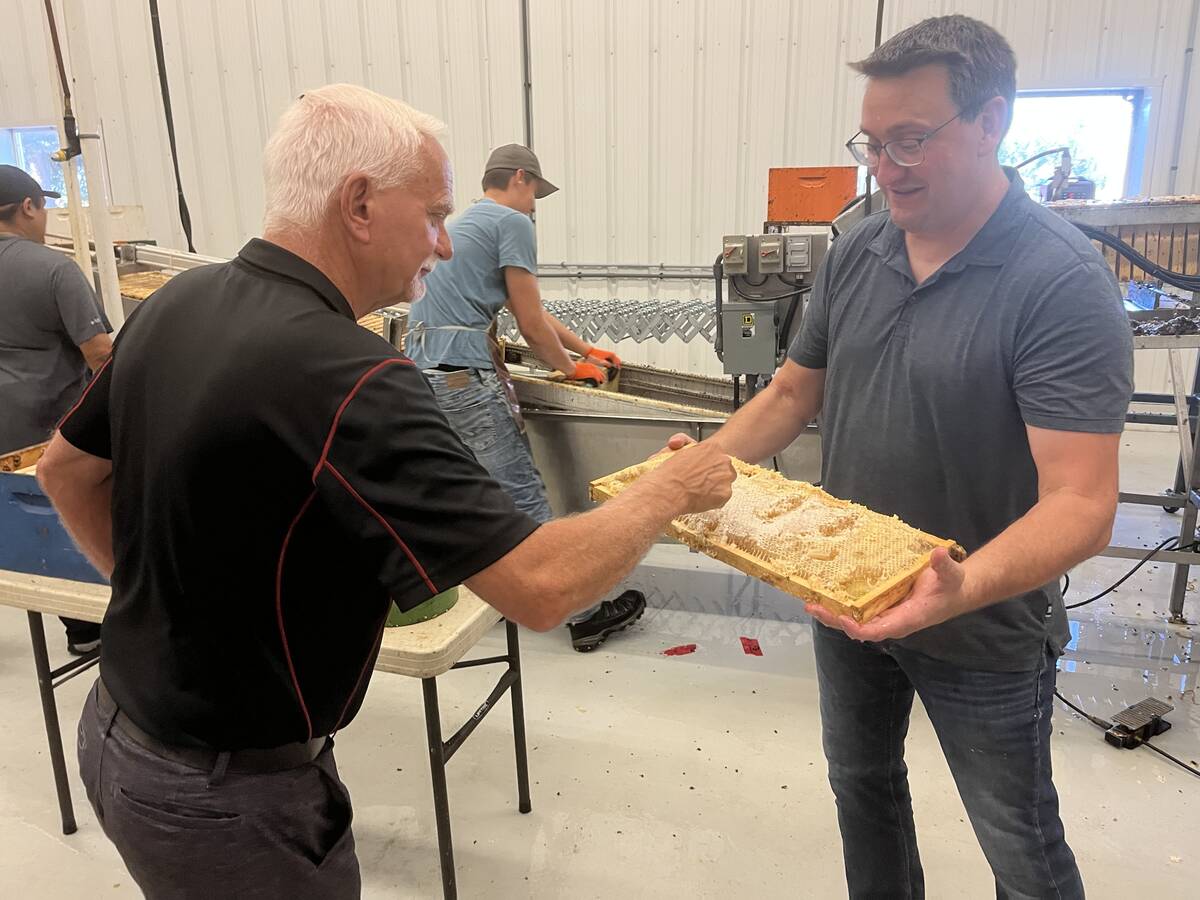After 12 years in operation, the Canadian Agricultural Safety Association decided it was time for an overhaul: a new city, a new boss and a new focus.
In October, the association moved its office to Winnipeg from Saskatoon, partly because of a new public health facility in Manitoba and partly because that’s where several grain industry companies have their headquarters.
It also hired Marcel Hacault as its new executive director and replaced its annual Agriculture Canada funding with a four-year $5 million commitment from the agricultural policy framework, which Hacault said allows the association to plan activities for longer periods.
Read Also

Alberta honey business ‘thrives’ despite bumpy beginnings
Thrive Honey showcases its honey production in market where Alberta produces 40 per cent of all honey produced in the country
The association’s main focus used to be distributing money to farm safety groups in an effort to reduce the 115 deaths and 1,500 injuries that happen each year on Canadian farms. It has now adopted a new four-part plan:
- Influence governments and policy. Hacault said a report on international labour standards should show that Canada is more advanced than most, especially in child labour on the farm. The report will be used to give Canada a trade advantage.
- Set up safety training systems that break the farming community into sectors such as youth, beginning farmers and older farmers. This will allow a specific safety message to be targetted to each sector.
“CASA wants to change the attitudes of farmers,” Hacault said. “We all know of an uncle who’d lost a finger. The attitude is, ‘it’s just part of farming.’ “
- Work with the Farmers with Disabilities program, which uses peer training to show injured farmers how they can stay working.
- Work on the issue of stress and mental health. While farm stress lines are set up in some provinces, there has not been a national approach. Hacault said the association plans a major survey of Canadian farmers’ mental health this year. It then hopes to collaborate with interested parties to make improvements.
Hacault said CASA also wants to expand its injury surveillance program to cover health issues and diseases among Canadian farmers and their families. This will require collaboration with a public health agency, he added.
CASA intends to initiate more projects on its own, such as studying regional differences in farmers’ health. It will also continue distributing $500,000 a year to safety-minded groups for projects and activities.
















